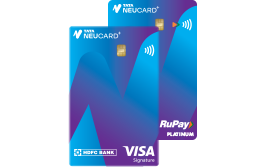Introduction
In today's fast-paced world, credit cards have become an indispensable financial tool. They offer a convenient way to make purchases, manage expenses, and build credit history. However, with numerous credit card options available, choosing the right one can be overwhelming. This comprehensive guide will help you understand the basics of credit cards, the application process, and essential factors to consider before applying.
Understanding Credit Cards
A credit card is a plastic card issued by a financial institution that allows you to borrow money up to a certain limit. When you make a purchase with your credit card, you're essentially borrowing money from the issuer. You're then expected to repay the borrowed amount, along with interest, within a specific timeframe.
Types of Credit Cards
There are various types of credit cards available, each catering to different needs and preferences. Here are some common types:
- Cashback Credit Cards: These cards offer rewards in the form of cashback on your spending.
- Reward Points Credit Cards: These cards allow you to earn reward points on your purchases, which can be redeemed for travel, merchandise, or other benefits.
- Travel Credit Cards: These cards are designed for frequent travelers, offering perks like lounge access, travel insurance, and bonus points on travel-related expenses.
- Low-Interest Credit Cards: These cards charge lower interest rates compared to regular credit cards, making them suitable for debt consolidation or large purchases.
- Balance Transfer Credit Cards: These cards offer a low introductory interest rate for balance transfers from other credit cards, helping you save on interest charges.
How to Apply for a Credit Card
Applying for a credit card is a relatively straightforward process. Here's a general overview of the steps involved:
- Choose a Credit Card: Research different credit cards and select one that aligns with your financial goals and lifestyle. Consider factors like annual fees, interest rates, rewards, and eligibility criteria.
- Gather Required Documents: Prepare the necessary documents, which typically include proof of identity (like a passport or driver's license), proof of address (like a utility bill), and income proof (like salary slips or bank statements).
- Submit the Application: You can apply for a credit card online, through a mobile app, or by visiting a bank branch. Fill out the application form accurately and provide all the required information.
- Credit Card Approval: The lender will review your application and assess your creditworthiness. Factors like your credit score, income, and debt-to-income ratio will be considered.
- Card Delivery: Once your application is approved, you will receive your credit card in the mail.
Factors to Consider Before Applying for a Credit Card
Before applying for a credit card, it's crucial to consider the following factors:
- Credit Score: A good credit score increases your chances of approval and helps you secure better terms.
- Income: Your income should be sufficient to cover your monthly expenses and credit card payments.
- Debt-to-Income Ratio: A lower debt-to-income ratio indicates better financial health and improves your creditworthiness.
- Annual Fees: Some credit cards charge annual fees, so consider whether the benefits outweigh the cost.
- Interest Rates: Understand the interest rates charged on purchases and cash advances.
- Rewards and Benefits: Evaluate the rewards and benefits offered by different credit cards and choose one that aligns with your spending habits.
Responsible Credit Card Usage
While credit cards offer numerous benefits, it's essential to use them responsibly. Here are some tips for responsible credit card usage:
- Pay Your Bills on Time: Always make your monthly payments on time to avoid late fees and negative impacts on your credit score.
- Avoid Maxing Out Your Credit Limit: Using your credit card to its full limit can negatively affect your credit score.
- Monitor Your Spending: Keep track of your expenses to avoid overspending.
- Pay Off Your Balance in Full: If possible, pay off your entire balance each month to avoid interest charges.
- Use Your Credit Card Wisely: Use your credit card for necessary purchases and avoid impulsive spending.
Conclusion
Credit cards can be a valuable financial tool when used responsibly. By understanding the different types of credit cards,
HERE ARE SOME CARD WHICH YOU CAN CHECK HERE.





No comments:
Post a Comment